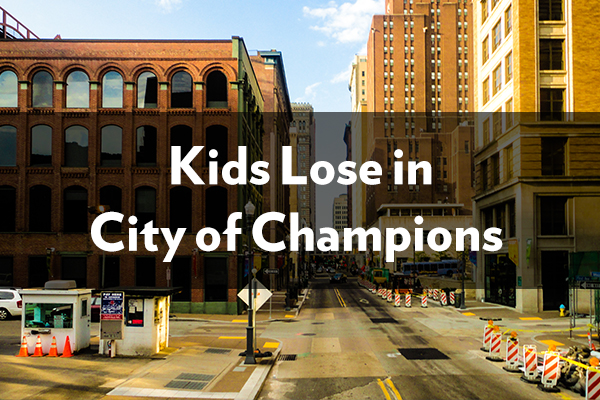Media

Is Your Team Losing Every Year? Pittsburgh Students Know the Feeling
This year has been rough for Pittsburgh sports fans. The Steelers missed the playoffs for the first time since 2013. The Penguins made it to the post-season for the 13th consecutive year but were knocked out in the first round. And the Pirates . . . well, the Pirates have been struggling for years.
But Pittsburgh is still the “City of Champions,” and fans have confidence their teams will turn things around. We can be patient—at the end of the day, even the most die-hard fans realize they’re just games.
Education, however, is no game.
Students who are mandated to attend low-performing schools find themselves disadvantaged for the rest of their lives. In two Pittsburgh-area districts, these disadvantages are alarming.
Due to lousy performance, declining enrollment, and financial problems, Duquesne closed its high school in 2007; Wilkinsburg followed suit in 2016. Now students in grades 7-12 are shuttled to other districts.
Duquesne students can attend East Allegheny or West Mifflin schools, with the $13,214 per student tuition paid by the Duquesne district, per state mandate.
Wilkinsburg students are sent to Pittsburgh Public School’s Westinghouse Academy. The tuition was set at $9,500 for 2017-18, with future increases to be agreed upon by the two districts.
It’s sad neither district took advantage of the opportunity to revolutionize education for its students. Both East Allegheny and Westinghouse high schools’ academic performance are among the worst 15% of schools in the state. Since Wilkinsburg and Duquesne are paying tuition to another school anyway, why not give students a choice of where to spend it?
Parents with financial means enjoy a wide variety of educational options by moving to a better district or paying for private school. Meanwhile, less well-off families are trapped in a lower-tier system. While these districts implicitly acknowledged their failures by eliminating grades 7-12, the powers-that-be still couldn’t relinquish control of the students. Instead, the state and local education establishments decided they knew best—sending students to other underperforming schools instead of letting Duquesne and Wilkinsburg parents choose for their kids.
The Educational Improvement Tax Credit (EITC) and the Opportunity Scholarship Tax Credit (OSTC) programs could massively help these kids—if only donations to the programs weren’t extremely limited due to state caps.
Families in Wilkinsburg and Duquesne can apply for EITC and OSTC scholarships, but good luck being awarded one. Nearly 50,000 applications are rejected each year because of the state cap, despite low average scholarship amounts ($1,800 for EITC and $2,500 for OSTC). These programs need to expand to meet demand so students can receive the best possible education.
An even more powerful solution? Give parents an Education Scholarship Account (ESA) with the tuition currently being paid by their local districts. That would provide parents real options to pursue the best education for their children
Families in Wilkinsburg, Duquesne, and throughout Pennsylvania should be able to choose the school that is right for them. Closing one low-achieving school and busing them to another isn’t the answer. When it comes to education, giving kids options is the way to put the “champion” back in the “City of Champions.”